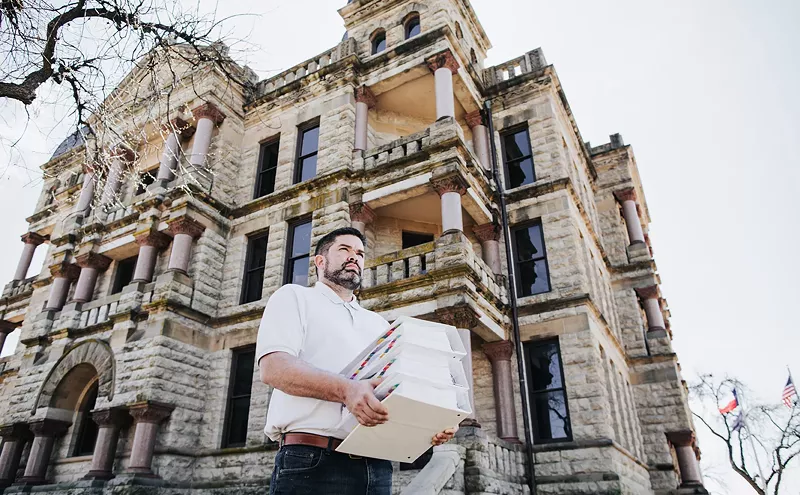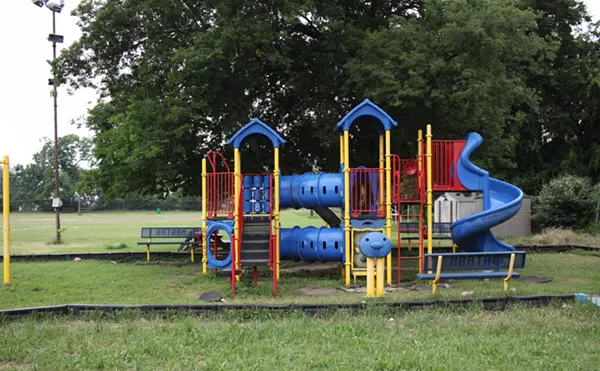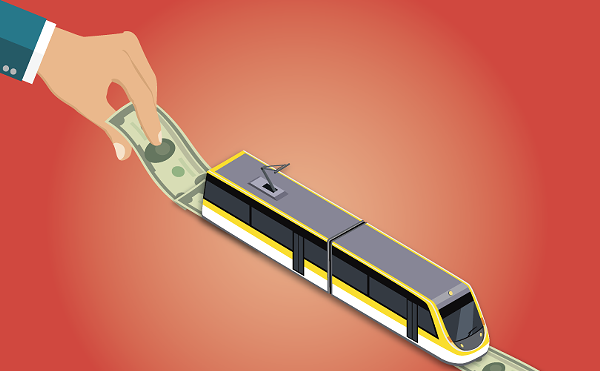One of the most cherished lines in American movies – “Forget it Jake, it’s Chinatown” – may take on new and bitter meaning here in Dallas, where backers of a proposed new six-lane toll road along the Trinity River through the center of the city are about to get the Chinatown blues.
The Chinatown that the toll-road backers here will have to worry about is not the one in Los Angeles that screenwriter Robert Towne painted in the 1974 Roman Polanski movie of the same name. This Chinatown, in Boston, is at the center of a newly published study reaffirming decades of research showing that human beings who regularly spend time next to highways incur significant health risks and damage, especially from heart disease, caused not so much by gases but by solid micro-particles spewed into the air by speeding vehicles.
The new findings give definition to a body of research that for years has pointed toward a nexus between dense clouds of tiny particulates in vehicle exhaust and serious health damage to people who live or spend significant time close to highways. That research already is causing planners and community leaders in Boston to call for mitigation efforts including more aggressive air filtration for buildings near highways in Boston’s Chinatown neighborhood near downtown and other areas cheek by jowl with major roadways.
The question here is pretty obvious. With this kind of science in hand, and with people elsewhere already trying to mitigate the damage from existing highways, who is going to stand in front of the public in Dallas and champion building a highway right through a new public park?
A recent story in The Boston Globe said the findings there are already causing people who have been regular users of parks near the freeway in the study to wonder if the health risks are worth it, especially for children. The study, carried out by Tufts University School of Medicine and Boston University School of Public Health examined pollution data gathered with instruments in vans that plied the streets of Boston and its suburbs near Interstate 93 and the Massachusetts Turnpike over a five-year period. At the same time, scientists were gathering a second set of data from blood samples drawn from people living at different distances from the roadway.
The findings are stark. If you live within 1,500 feet of a highway, the study found, you are likely to have a 14 percent higher level of C-reactive protein in your blood, associated with heart attack and stroke, than someone who lives half a mile from the highway. That protein and other substances found at elevated levels in blood of people near the highway are produced by the body as defenses against microscopic particles in exhaust.
Sustained exposure to those particles, the study found, can produce a condition of generalized inflammation throughout the body. It is this inflammation that is associated with a significant risk of heart attack and stroke.
Another piece of the puzzle that should be especially interesting here, given the recent success of the Klyde Warren deck park, is that deck parks may expose people to the very worst levels of particulate poisoning. Those risks may be mitigated by an aggressive use of trees, shrubs and air filters, but the risk level itself certainly calls into question the wisdom of building any more new deck parks.
Maybe the most insidious threat posed by the kind of pollution examined in the Boston study is that micro-particulates are untouched by government regulations focused mainly on gases. But these substances are able to cross the barrier from the lungs to the blood and work their way deep into the body like tiny bullets.
“When it comes to air pollution, the main thing that really affects people is particulates — not gases,” says Doug Brugge, the study’s principal investigator, a professor of public health and community medicine at Tufts. “Most of the mortality, most of the economic impact [of fine and ultrafine particulates] are coming from cardiovascular disease. It’s not primarily asthma or lung cancer.”
Brugge told a Tufts newsletter that, “The Environmental Protection Agency estimates that (micro-particulates) cause 80,000 or 100,000 deaths a year in the United States, and maybe four million or more worldwide.”
We have talked here about the debate going on at City Hall over which is more important, the proposed Trinity toll road highway downtown or the proposed new river park that would share a miles-long bed with it. I told you how the highway backers, notably former Mayor Ron Kirk and former County Judge Lee Jackson, bristled at a suggestion made during a recent hearing that the park should have precedence, or, as a visiting consultant had put it, “the park must be the client.”
Kirk and Jackson insisted that the road had always been at least an equally important client if not perhaps even more so, with a strong suggestion that the park would have to fit itself in along the road wherever it could. But these new findings plainly and emphatically change that calculus.
There is no fitting or accommodating of a serious health hazard with a recreational magnet like a vast new park. Instead what is called for now is a choice, one or the other. And indeed, some of the research around the particulates issue suggests the health hazard posed by a highway can be mitigated by building high walls along both sides to shunt the particulates up into higher air currents. Perhaps by building a road between the 50-feet high flood control levees as the plan calls for, that goal would be achieved.
But can you even imagine building a highway along the river, trapping clouds of particulates between the levees, and then inviting the public out into that poison porridge for a day at the park?
The debate on the Trinity toll road can’t step around this issue. Our elected officials will have to sit at this table and eventually show their cards. And that will be a very telling moment.

Audio By Carbonatix
[
{
"name": "GPT - Billboard - Slot Inline - Content - Labeled - No Desktop",
"component": "21721571",
"insertPoint": "2",
"requiredCountToDisplay": "2"
},{
"name": "STN Player - Float - Mobile Only ",
"component": "21861991",
"insertPoint": "2",
"requiredCountToDisplay": "2"
},{
"name": "Editor Picks",
"component": "17105533",
"insertPoint": "4",
"requiredCountToDisplay": "1"
},{
"name": "Inline Links",
"component": "18349797",
"insertPoint": "8th",
"startingPoint": 8,
"requiredCountToDisplay": "7",
"maxInsertions": 25
},{
"name": "GPT - 2x Rectangles Desktop, Tower on Mobile - Labeled",
"component": "22608066",
"insertPoint": "8th",
"startingPoint": 8,
"requiredCountToDisplay": "7",
"maxInsertions": 25
},{
"name": "Inline Links",
"component": "18349797",
"insertPoint": "8th",
"startingPoint": 12,
"requiredCountToDisplay": "11",
"maxInsertions": 25
},{
"name": "GPT - Leaderboard to Tower - Slot Auto-select - Labeled",
"component": "17357520",
"insertPoint": "8th",
"startingPoint": 12,
"requiredCountToDisplay": "11",
"maxInsertions": 25
}
]











